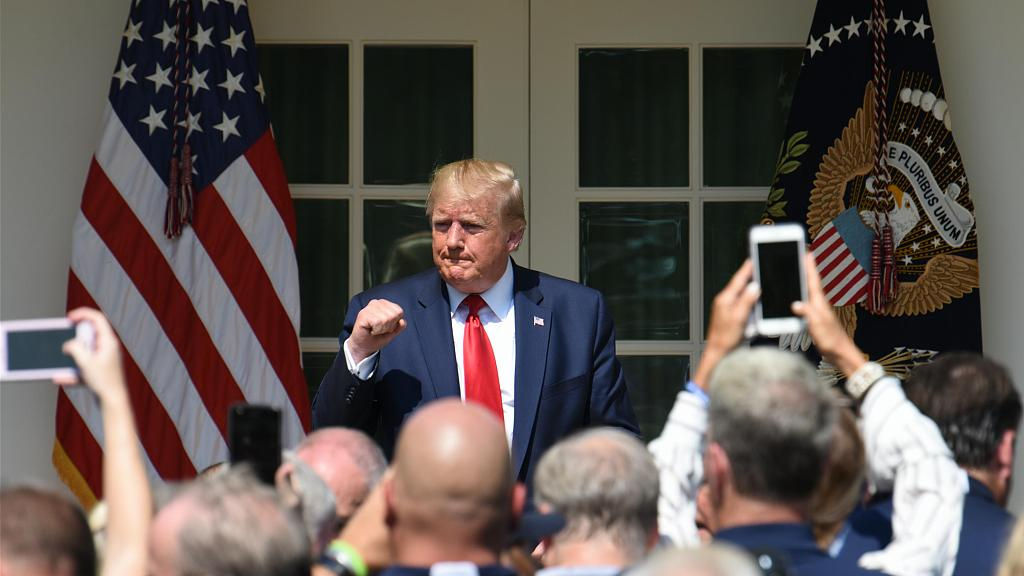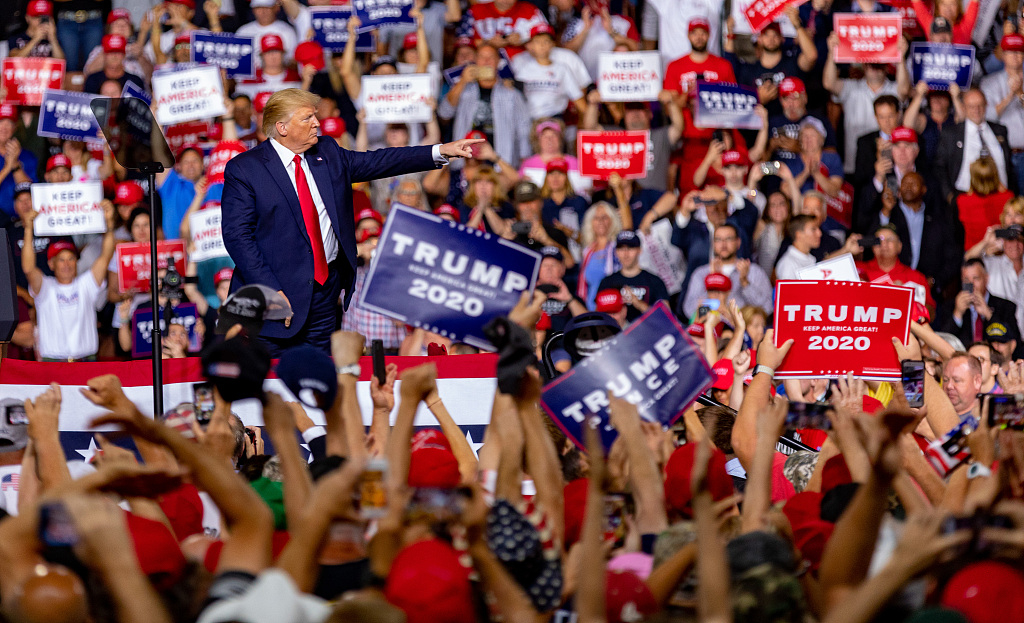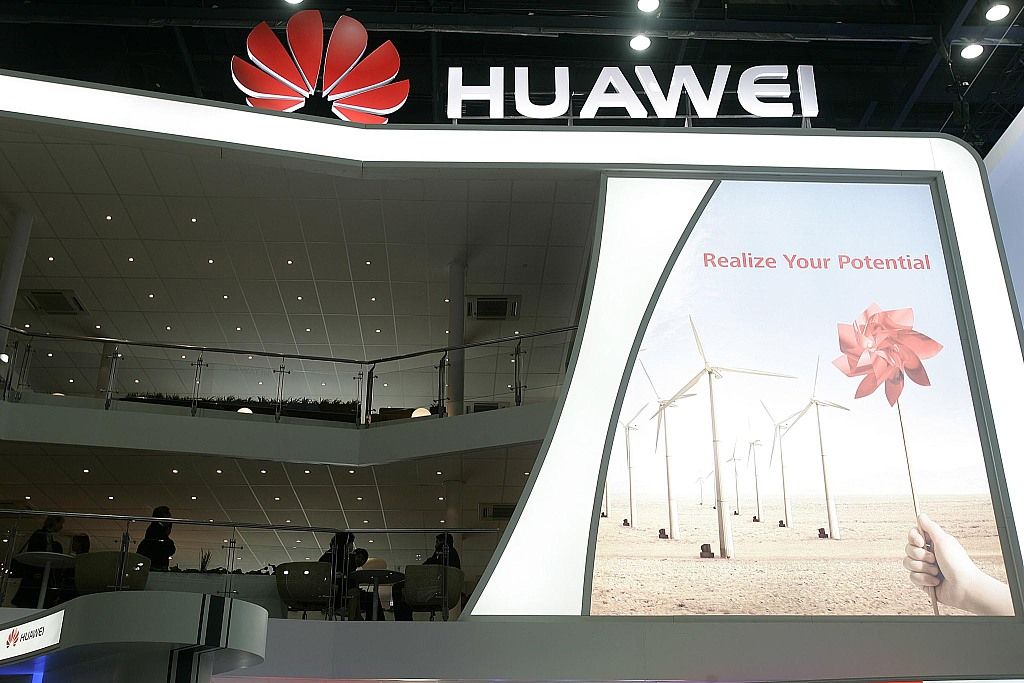

Editor's note: Tom Fowdy is a British political and international relations analyst and a graduate of Durham and Oxford universities. He writes on topics about China, the DPRK, Britain and the United States. The article reflects the author's opinions, and not necessarily the views of CGTN.
Once again, the China-U.S. trade war has taken a turn for the worse, with Donald Trump having decided to raise all tariffs on Chinese goods both in place and scheduled by an additional five percent. When facing criticism from the mainstream media for its accumulating impact on the American economy, the president several days ago responded: "I am the chosen one" to "take on China" and "someone had to do it" – appearing to deviate from what has been a dismissal of the potential economic damage to the United States with a new narrative that confrontation with China is necessary and the price was worth it.
But is Trump really the "chosen one" to take on China? At first glance, his comment appeared to be a typical element of his own self-glorification, comparable to his recent bogus claim that Jews believe he is the "second coming of God." However, there is a strong political element behind it. Although dialogue continues to be open at a technical level, there are strong indicators now that the United States is not interested in a serious compromise with China, constrained as it is by domestic politics.
The trade war increasingly resembles a geopolitical confrontation which Trump does not appear to be willing to give up unless all of his demands are met. That's why China's refusal to capitulate has been met with more escalation time and time again, even if his leverage is running short. With the domestic political environment largely supportive of his path, he may see more opportunity in brushing off damage as "justified," as contradictory and nonsensical as it is weighed up against Trump's all other claims, believing nationalism is a better vote winner than a compromise trade agreement where other elements of the U.S. political system would call him out for betrayal.

Despite everything, Trump still owns a fervent base of supporters. The picture shows him campaigning in New Hampshire on August 15, 2019. /VCG Photo
For many months now I have written on the China-U.S. trade war. I was for a long time hopeful that it would be resolved and optimistic that Trump would eventually make a deal in order to reap the economic rewards in time for the 2020 election and claim a political victory. However, each time I have been confounded by the president in that windows of what seemed productive and fruitful negotiations suddenly ended with random and belligerent escalation on behalf of the White House. The dialogue running up to May ended with more tariffs, the G20 Osaka "ceasefire" lasted less than two months before more tariffs were on the way. It just doesn't end, despite its obvious impact on the U.S. economy.
This has made me question frantically, just what does Trump really want? I see how he ends up compromising on the trade disputes he picks with every other country, including the EU, Japan and Mexico, but for China? It appears there is no room for compromise whatsoever; either Beijing submits completely to all of America's demands or seemingly, it gets nothing. This has meant the geopolitical element of the trade war is undeniable. It is not just a dispute, it is a confrontation aimed at hampering a country's rise unless it is incorporated into the sphere of American hegemony.
Against this background, although Trump had clear second thoughts about escalation, which included delaying the implementation of new tariffs, giving compromises on Huawei and even saying he was "regretful" of escalation (later retracted), it seems he wants to reap the political rewards of "being tough on China" and the current mindset of the American system is also acting as a huge hindrance to negotiations – even proposing concessions on Huawei was met with outrage. The mainstream media are scrutinizing the trade war even more now, but politicians just aren't relenting; only a few of them are opposing it.

Trump granted permit to do business with Huawei and then retracted it days later. /VCG Photo
That is the problem. The president subsequently is led to believe that being tough on China is a bigger vote winner than a booming economy. Thus, arguing that confrontation with Beijing is a necessary price to pay for America's future may sell well, especially when there are a few highly placed people (bar journalists) willing to attack him for it, whereas an actual deal itself is bound to bring scrutiny with some Republicans effectively likely to brand compromise with Beijing as a form of treason. Thus, his "all or nothing" negotiation demands and talk of being a "chosen one" have seemingly prolonged things just at the very moment when he was personally considering relenting. Instead of him shaping the way, he is now constrained into following the very political currents he unleashed.
Of course, if Trump eventually tips the United States into recession, things may still prove yet to be a completely different story. But for now, escalation and tough talk continue to pay.
(If you want to contribute and have specific expertise, please contact us at opinions@cgtn.com.)

Copyright © 2018 CGTN. Beijing ICP prepared NO.16065310-3
Copyright © 2018 CGTN. Beijing ICP prepared NO.16065310-3